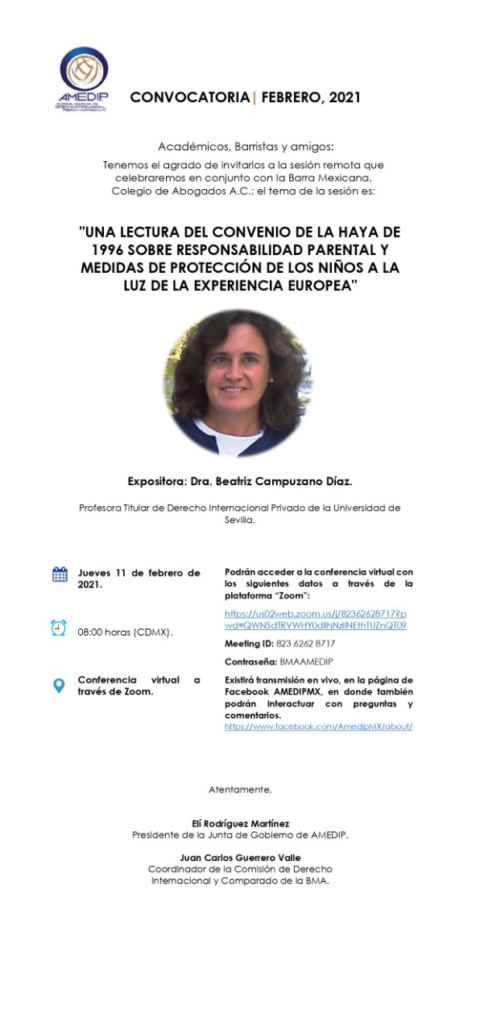Call for Papers: SLS Conflict of Laws Section, Durham University and virtually, 2021
As has now become tradition, the Annual Conference of the Society of Legal Scholars (SLS) will feature a section dedicated to Conflict of Laws. In 2021, the conference will take place between 31 August and 3 September at the University of Durham and virtually (further information on the conference can be found here). The new conveners of the Conflict of Laws section, Lauren Clayton-Helm and Bobby Lindsay, have kindly provided the following Call for Papers.
SLS Conflict of Laws Section: Call for Papers/Panels for 2021 SLS Annual Conference at Durham University and virtually
This is a call for papers and panels for the Conflict of Laws section of the 2021 Society of Legal Scholars Annual Conference to be held at the University of Durham, from Tuesday 31st August – Friday 3rd September. The Conflict of Laws section will meet in the first half of the conference on 31st August – 1st September and will have four sessions, each lasting 90 minutes.
If you are interested in delivering a paper or organising a panel, please submit your paper abstract or panel details by 11:59pm UK time on Friday 26th March 2021. All abstracts and panel details must be submitted through the Oxford Abstracts conference system which can be accessed using the following link – https://app.oxfordabstracts.com/stages/2483/submitter – and following the instructions (select ‘Track’ for the relevant subject section). If you registered for Oxford Abstracts for last year’s conference, please ensure that you use the same e-mail address this year if that address remains current. For those whose papers are accepted, the original submission offers the facility to upload a full paper nearer the time. If you experience any issues in using Oxford Abstracts, please contact http://slsconference@mosaicevents.co.uk.
We intend to host the 2021 conference in person, with an online option for those who would prefer to participate virtually. The precise format of the conference will be confirmed by the end of April. When submitting an abstract you will be asked to indicate whether you would wish to present in person or virtually. Please note that this indication is not binding and it is merely to assist with conference planning.
Decisions will be communicated by the end of April.
We welcome proposals for papers and panels on any issue relating to the conflict of laws/private international law. We welcome proposals representing a full range of intellectual perspectives and methodological approaches in the subject section, and from those at all stages of their careers.
Those wishing to present a paper should submit a title and abstract of around 300 words. Those wishing to propose a panel should submit a document outlining the theme and rationale for the panel and the names of the proposed speakers (who must have agreed to participate) and their abstracts. Sessions are 90 minutes in length and so we recommend panels of three to four speakers, though the conference organisers reserve the right to add speakers to panels in the interests of balance and diversity.
As the SLS is keen to ensure that as many members with good quality papers as possible are able to present, we discourage speakers from presenting more than one paper at the conference. With this in mind, when you submit an abstract via Oxford Abstracts you will be asked to note if you are also responding to calls for papers or panels from other sections.
Please also note that the SLS offers two prizes. First, The Best Paper Prize, which can be awarded to academics at any stage of their career and which is open to those presenting papers individually or within a panel. The Prize carries a £300 monetary award and the winning paper will, subject to the usual process of review and publisher’s conditions, appear in Legal Studies. To be eligible:
- speakers must be fully paid-up members of the SLS (Where a paper has more than one author, all authors eligible for membership of the Society under its rule 3 must be members. The decision as to eligibility of any co-authors will be taken by the Membership Secretary, whose decision will be final.)
- papers must not exceed 12,000 words including footnotes (as counted in Word);
- papers must be uploaded to the paperbank by 11:59pm UK time on Monday 23rd August;
- papers must not have been published previously or have been accepted or be under consideration for publication; and
- papers must have been accepted by a convenor in a subject section and an oral version of the paper must be presented at the Annual Conference.
Last year the Society launched the Best Paper by a Doctoral Student Prize, which is open to currently registered doctoral students who are members of the Society. The Prize is £300. There is no link to publication in Legal Studies arising from this award, but any winner would be welcome to submit their paper for consideration by the Society’s journal. To be eligible:
- speakers must be fully paid-up members of the SLS who are Doctoral students. (Where a paper has more than one author, all authors eligible for membership of the Society under its rule 3 must be members and all authors must be Doctoral students, whatever their discipline). The decision as to eligibility of any co-authors will be taken by the Membership Secretary, whose decision will be final;
- papers must not exceed 12,000 words including footnotes (as counted in Word);
- papers must be uploaded to the paperbank by 11:59pm UK time on Monday 23rd August;
- papers must not have been published previously or have been accepted or be under consideration for publication; and
- papers must have been accepted by a convenor in a subject section and an oral version of the paper must be presented at the Annual Conference.
We have also been asked to remind you that all speakers will need to book and pay to attend the conference and that they will need to register for the conference by Friday 18th June 2021 in order to secure their place within the programme, though please do let us know if this deadline is likely to pose any problems for you. Booking information will be circulated in due course, and will open after the decisions on the response to the calls are made.
With best wishes,
Dr Lauren Clayton-Helm (l.clayton-helm@northumbria.ac.uk)
Dr Bobby Lindsay (bobby.lindsay@glasgow.ac.uk)
Co-convenors, Conflict of Laws Section


